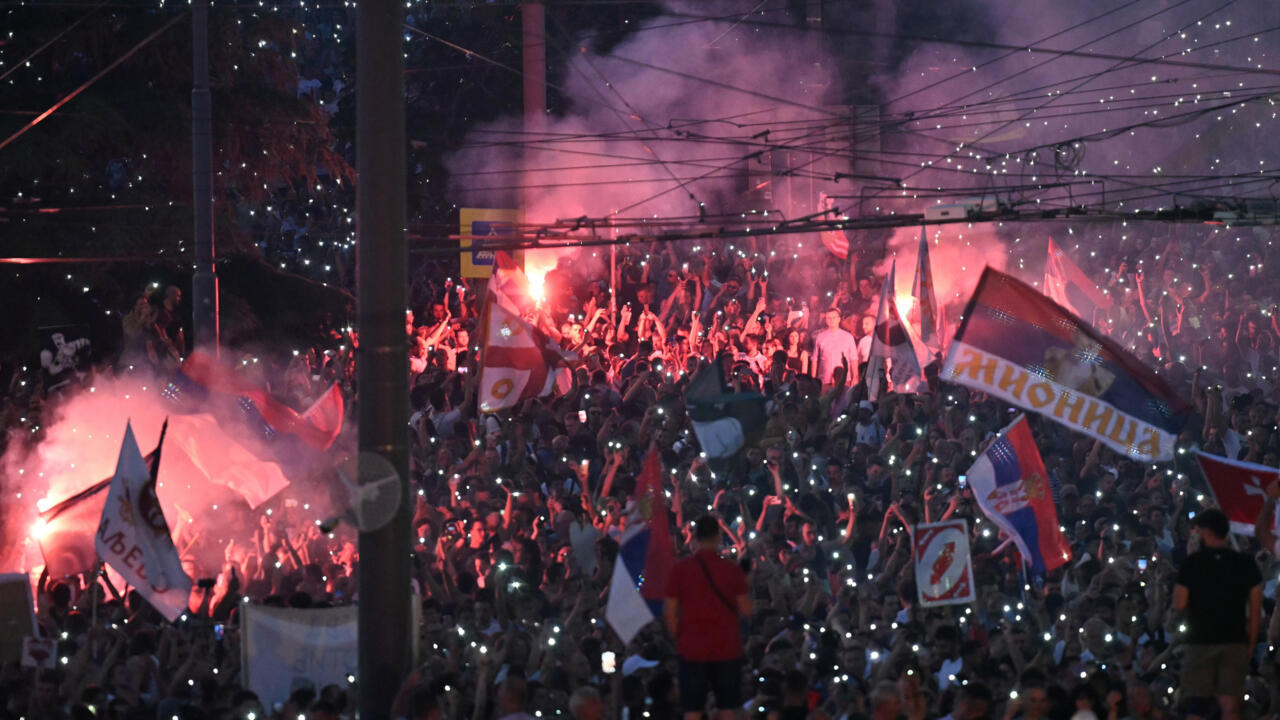Articles in this Cluster
29-06-2025
The IAEA’s Rafael Grossi says Iran could restart uranium enrichment for a potential nuclear weapon within months, despite recent U.S.-Israeli strikes that caused serious but not total damage to facilities at Fordo, Natanz, and Isfahan. His assessment counters Donald Trump’s claim that the sites were “totally obliterated,” aligning instead with a U.S. intelligence view that the program was set back only by months. Iran has curtailed cooperation with the IAEA following a UN finding that it breached non-proliferation obligations, while issuing mixed messages about the damage. Grossi urges a diplomatic solution. Since the U.S. quit the 2015 nuclear deal in 2018, Iran has escalated enrichment, including at Fordo, and accumulated enough 60% enriched uranium for potentially nine bombs, though Iran maintains its program is peaceful.
Entities: International Atomic Energy Agency (IAEA), Rafael Grossi, Iran, United States, Israel • Tone: analytical • Sentiment: negative • Intent: warn
29-06-2025
Iran held a state funeral in Tehran for about 60 people, including senior military commanders and nuclear scientists, killed during a 12-day conflict with Israel that ended in a ceasefire after U.S. strikes on Iranian nuclear sites. Among the dead were Armed Forces Chief of Staff Mohammad Bagheri, IRGC leader Hossein Salami, and nuclear figure Mohammad Mehdi Tehranchi; authorities say 627 people were killed in Iran and Israel reports 28 deaths from Iranian missile attacks. The ceremony, attended by President Masoud Pezeshkian and top officials, drew large crowds amid a state-led mobilization. Tensions escalated as former U.S. President Donald Trump said he would consider further strikes if Iran’s enrichment advances, prompting rebukes from Iran’s foreign minister. The IAEA’s Rafael Grossi cautioned that military action cannot definitively resolve Iran’s nuclear issue and called for an agreement, while Tehran acknowledged serious damage to its nuclear facilities.
Entities: Iran, Israel, Tehran, Mohammad Bagheri, Hossein Salami • Tone: analytical • Sentiment: negative • Intent: inform
29-06-2025
IAEA chief Rafael Mariano Grossi said recent U.S. strikes and Israeli assassinations have caused very serious damage to key Iranian nuclear sites at Fordo, Natanz, and Isfahan, setting back enrichment, conversion, and treatment capabilities, though some infrastructure remains. He emphasized the need for next steps focused on diplomacy and verification: if talks led by U.S. envoys succeed, the IAEA must verify any agreed limits. Despite an Iranian law signaling reduced cooperation and remarks about barring Grossi personally, Iran has not formally expelled inspectors and remains bound by the NPT, which requires IAEA engagement. Grossi urged rapid, practical discussions to re-establish inspector access and knowledge of activities and materials. Iran did not inform the IAEA of protective measures taken before the strikes; a planned June 13 inspection of a new Isfahan enrichment facility was preempted by damage. Grossi stressed that lasting resolution after the military escalation must be diplomatic and verifiable.
Entities: International Atomic Energy Agency (IAEA), Rafael Mariano Grossi, Iran, Fordo, Natanz • Tone: analytical • Sentiment: neutral • Intent: inform
29-06-2025
IAEA chief Rafael Grossi said recent US strikes caused “severe but not total” damage to Iran’s nuclear program and that Tehran could resume uranium enrichment within months, contradicting President Trump’s claim the program was set back by decades. A preliminary Pentagon assessment and intercepted Iranian messages suggest core capabilities and know-how remain, with possible movement of enriched material before the attacks. Iran maintains its program is for peaceful purposes and asserts an “inalienable right” to enrichment. Grossi urged renewed IAEA access, noting unresolved questions about undeclared uranium traces. Meanwhile, Iran’s parliament moved to halt cooperation with the IAEA and officials signaled a possible rethink of NPT membership, escalating concerns over oversight and proliferation risk.
Entities: International Atomic Energy Agency (IAEA), Rafael Grossi, Iran, United States, Pentagon • Tone: analytical • Sentiment: negative • Intent: inform
29-06-2025
The IAEA’s chief, Rafael Grossi, said Iran could resume enriching uranium within months despite U.S. strikes that severely damaged but did not destroy its enrichment sites. A DIA assessment and European intelligence align, suggesting only a short-term setback. While enrichment capacity may return quickly, the destruction of facilities needed to convert enriched uranium to metal could delay weaponization for years. Uncertainty remains over whether Iran moved parts of its 60 percent stockpile before the strikes. President Trump insists Iran’s program was “obliterated,” disputes intelligence suggesting retained capability, and threatens legal action over leak reports, while also signaling openness to negotiations and lifting sanctions if Iran accepts strict limits and inspections. Jake Sullivan argued a new deal is critical, noting Iran likely retains stockpiles and centrifuge know-how, making a rapid “crash” program possible within one to three years if pursued.
Entities: International Atomic Energy Agency (IAEA), Rafael Grossi, Iran, Uranium enrichment, Defense Intelligence Agency (DIA) • Tone: analytical • Sentiment: neutral • Intent: inform
29-06-2025
UN nuclear watchdog chief Rafael Grossi said Iran could resume producing enriched uranium within months despite US and Israeli strikes on its nuclear sites. While Iran’s foreign minister called the damage “serious” and President Trump claimed the program was set back “decades,” Grossi noted some facilities remain intact and a few centrifuge cascades could be spinning relatively soon. A key unresolved question is whether Iran moved its highly enriched uranium stockpile before the attacks.
Entities: Rafael Grossi, Iran, UN nuclear watchdog, highly enriched uranium, centrifuge cascades • Tone: analytical • Sentiment: neutral • Intent: inform
